ABBOTSFORD – Canadian agriculture has the potential to generate $11 billion in revenue, Royal Bank of Canada senior vice-president John Stackhouse told a select group of industry leaders at an RBC Farmer 4.0 luncheon in Abbotsford, October 10.
“The world will have to produce more food than ever before to feed people in the next 40 years,” he said. “To feed the world more sustainably is a calling for Canada.”
Stackhouse was reporting on RBC’s release of Farmer 4.0, a new report detailing the potential of Canadian agriculture and what it will take to realize it.
It was deliberately titled Farmer 4.0 as RBC believes we are now in the fourth iteration of farming. Farmer 1.0 represented the shift from subsistence agriculture to specialization; Farmer 2.0 occurred with the development of advanced machinery for agriculture and Farmer 3.0 took place as a result of the scientific revolution.
Farmer 4.0 represents a technological and data revolution, with the development of supercomputers as small as an iPhone and such smart machines as robotic milkers, robotic picking machines and autonomous tractors.
Although this will reduce agriculture’s manual labour requirements, Stackhouse insisted agriculture will need more people, not less. It’s just that those people will need different skills, in particular the ability to analyze and manage the massive amount of data being generated.
“We need to change the way we educate people,” Stackhouse said. “The federal government needs to stand up and deliver a national agricultural skills strategy. We need to connect research and development to skills development.”
Stackhouse said Canada lags well behind the Netherlands, Norway, Israel and Australia in using data and technology to increase production. The Netherlands, for example, has three times the agricultural exports Canada does despite having just 3% of the arable land of farmers in Canada.
Providing their insights into how to get agriculture to reach the potential Stackhouse identified were Rickey Yada, dean of the UBC Faculty of Land & Food Systems, Lisa Powell, associate director for research at the University of the Fraser Valley Food & Agriculture Institute and Ian Paton, agriculture co-critic for the BC Liberals.
“The key is to take an interdisciplinary approach,” Powell said. “We need to confront the challenges facing new and young producers, such as land affordability, access to capital and skilled labour.”
Yada said getting new technology into production more quickly is key.
“We need to reinforce nimbleness and change,” he said.
Paton called for more support for “big commercial farms,” saying they have the scale to feed the world. At the same time, he demanded more opportunities for on-farm markets, pumpkin patches, corn mazes and other agritourism initiatives. Despite their small size, he said they are critical to getting people onto farms and “more excited about farming.”
Once they are excited about it, Paton said, more people will be interested in becoming involved in agriculture.
Powell asked for more support for public research, noting much of today’s research is conducted by private companies which then limit access to it.
“We need access to publicly accessible research data,” she said, asking, “How do we increase dialogue between knowledge-producers and knowledge users?”

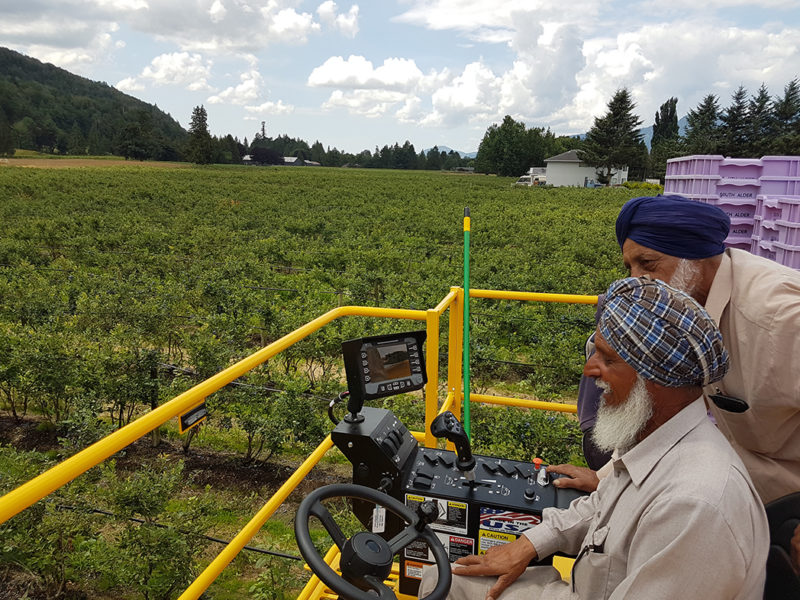

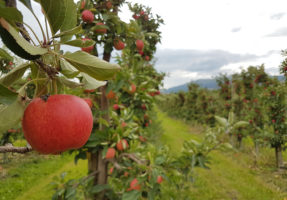
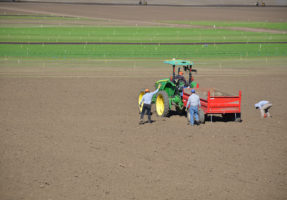
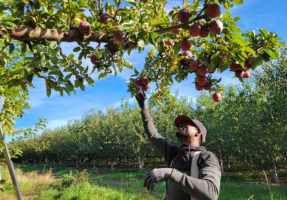

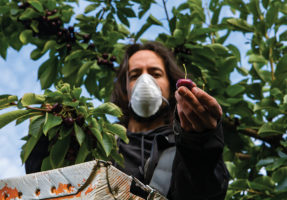

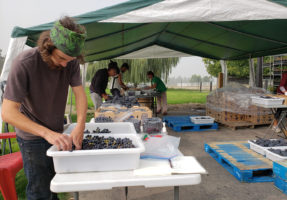



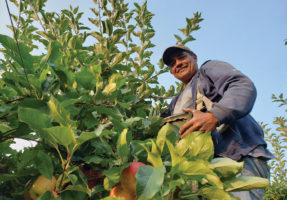
 Blue country, red cities
Blue country, red cities